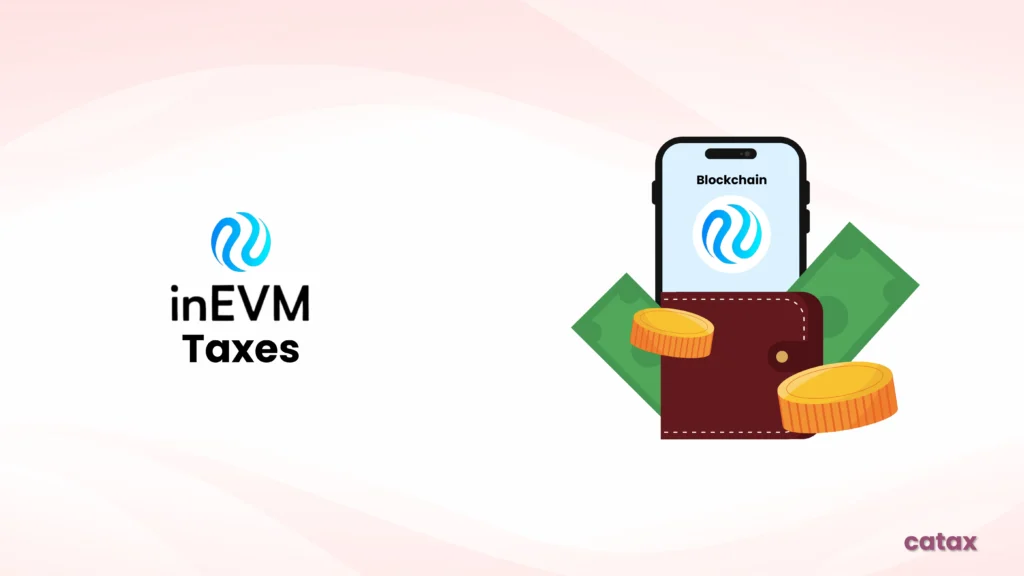Crypto tax rules are different in every country, and your Vanar Chain (VANRY) transactions might be taxed in different ways depending on where you live. Whether you’re buying, selling, trading, or staking VANRY, it’s important to understand how your tax authority treats these actions so you can stay on the right side of the law and avoid penalties.
This guide explains everything you need to know about Vanar Chain taxes in simple terms—so you can manage your crypto taxes easily and responsibly.

How to Connect Your Vanar Wallet to Catax
To track your Vanar Chain (VANRY) transactions and calculate taxes easily, connect your wallet to Catax using these steps:
- Open your Vanar wallet or use a supported wallet like MetaMask, Trust Wallet, or Ledger.
- Copy your public wallet address.
In Catax:
- Log in and choose your country.
- Go to the Integrations section.
- Select the Vanar Chain network.
- Paste your wallet address and click Connect.
Once linked, Catax will automatically track your VANRY transactions—making tax time easier and stress-free.
Calculate My Taxes ➤Are Vanar Chain Transactions Taxable?
Yes, Vanar Chain (VANRY) transactions are taxable in most countries. The way they are taxed depends on what you do with VANRY (sell, trade, stake, etc.), and your country may classify VANRY as property, a digital asset or as income.
When Do You Need to Pay Taxes on Vanar Chain?
You may need to pay taxes in these situations:
- Selling VANRY for profit : If you sell VANRY at a higher price than you bought it, you usually have to pay tax on the profit.
- Trading VANRY for other crypto – Swapping VANRY for tokens like BTC or ETH is often a taxable event.
- Spending VANRY – Using VANRY to buy something may trigger taxes if its value has increased since you got it.
- Staking rewards – When you earn VANRY through staking, tax authorities may treat it as income and tax it when you receive it.
- Getting paid in VANRY – If someone pays you in VANRY for a service or job, you generally have to pay tax on it as income.
Tax laws vary by country, so check your local rules or ask a tax advisor.
Can You Deduct Trading Fees and Other Costs?
It depends on your country’s rules. In some places, you can subtract these costs from your taxes:
- Fees for buying or selling VANRY
- Network fees when sending VANRY
- Security tools like hardware wallets
Other countries only let you deduct the original purchase cost (called “cost basis”) and not the extra fees.
Always check your local tax rules or talk to a professional for details.
How Is Vanar Chain Taxed Based on How Long You Hold It?
In many countries, your tax rate depends on how long you’ve held VANRY before selling it:
- Less than 1 year (Short-term) – Usually taxed like regular income
- More than 1 year (Long-term) – May get a lower tax rate in some countries
- Flat-rate systems – Some places use a single fixed rate no matter how long you held the asset
Knowing this can help you plan better and possibly reduce your taxes.
You can also check out our Country-Specific Guide for Crypto in Your country. This guide provides insights on regulations, tax implications, and compliance measures breifly explained for each country.
How Is Staking VANRY Taxed?
Staking VANRY lets you earn rewards, but those rewards might be taxed depending on your country:
- In many countries, tax authorities treat staking rewards as income and tax you when you receive them.
- In some countries, you pay tax on the rewards only when you sell or trade them, and they’re treated as capital gains.
Be sure to find out how your country handles staking rewards—because you might owe taxes even if you haven’t sold the tokens.
Can You Claim Vanar Chain Losses on Your Taxes?
If you sell VANRY at a loss, you might be able to use that loss to lower your tax bill:
- Offset gains – Some countries let you subtract your losses from other crypto profits.
- Carry forward losses – If you don’t have gains this year, some countries let you apply the losses to future years.
- No deductions – In certain places, crypto losses can’t be used to reduce taxes.
To claim any losses, keep good records—like the dates you bought and sold, prices, and exchange details.
Tips to Stay Compliant with Vanar Tax Rules
Crypto tax laws change often, so it’s important to stay updated and follow the rules. Here’s how to stay on track:
- Understand how VANRY is taxed in your country – Is it treated as income, a capital asset, or something else?
- Know what expenses are deductible – Some fees and tools may reduce your taxes.
- Track all your transactions – Record every buy, sell, stake, or spend involving VANRY.
- Use a crypto tax tool like Catax – It helps automate tracking and tax reports.
- Ask a tax expert – If you’re unsure, a crypto-savvy tax professional can guide you.
By keeping things organized and staying informed, you’ll manage your Vanar Chain taxes smoothly and avoid unexpected issues.
Book a Free Consultation Now →

